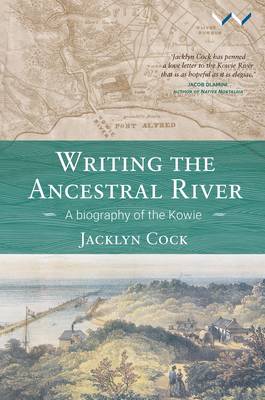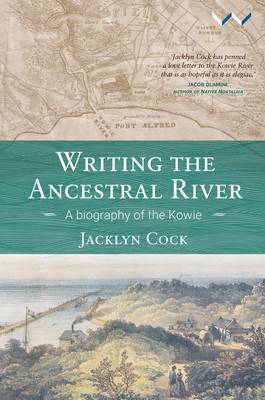
- Afhalen na 1 uur in een winkel met voorraad
- Gratis thuislevering in België vanaf € 30
- Ruim aanbod met 7 miljoen producten
- Afhalen na 1 uur in een winkel met voorraad
- Gratis thuislevering in België vanaf € 30
- Ruim aanbod met 7 miljoen producten
Zoeken
€ 33,95
+ 67 punten
Omschrijving
Writing the Ancestral River is an illuminating and unusual biography of the Kowie River in the Eastern Cape
This tidal river runs through the centre of what used to be called the Zuurveld, a formative meeting ground of different peoples who have shaped our history: Khoikhoi herders, Xhosa pastoralists, Dutch trekboers and British settlers. Their direct descendants continue to live in the area and interact in ways that have been decisively shaped by their shared history. Besides being a social history, this is also a natural history of the river and its catchment area, where dinosaurs once roamed and cycads still grow. As the book shows, the natural world of the Kowie has felt the effects of human settlement, most strikingly through the establishment of a harbour at the mouth of the river in the 19th century and the development of a marina in the late 20th century. Both projects have had a decisive and deleterious impact on the Kowie. People are increasingly reconnecting with nature and justice through rivers. Acknowledging the past, and the inter-generational, racialised privileges, damages and denials it established and perpetuates, is necessary for any shared future. By focusing on this `little' river, the book raises larger questions about colonialism, capitalism, `development' and ecology, and asks us to consider the connections between social and environmental injustice.Specificaties
Betrokkenen
- Auteur(s):
- Uitgeverij:
Inhoud
- Aantal bladzijden:
- 204
- Taal:
- Engels
Eigenschappen
- Productcode (EAN):
- 9781776141876
- Verschijningsdatum:
- 1/03/2018
- Uitvoering:
- Paperback
- Formaat:
- Trade paperback (VS)
- Afmetingen:
- 152 mm x 229 mm
- Gewicht:
- 326 g

Alleen bij Standaard Boekhandel
+ 67 punten op je klantenkaart van Standaard Boekhandel
Beoordelingen
We publiceren alleen reviews die voldoen aan de voorwaarden voor reviews. Bekijk onze voorwaarden voor reviews.








